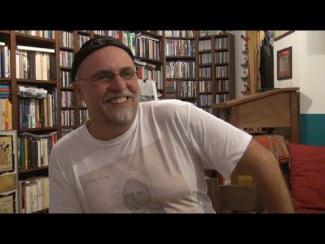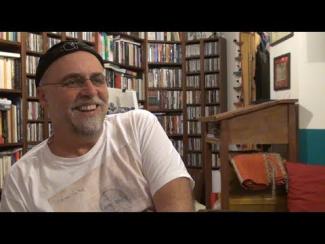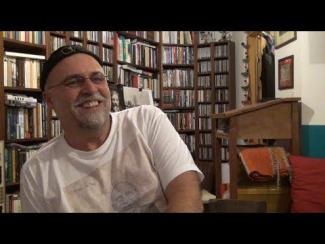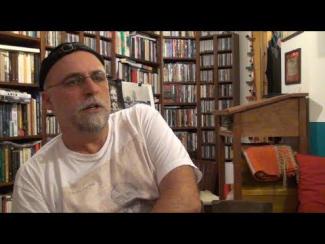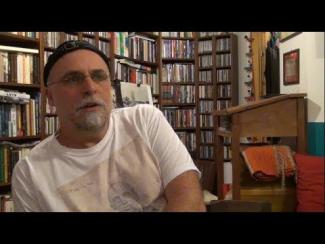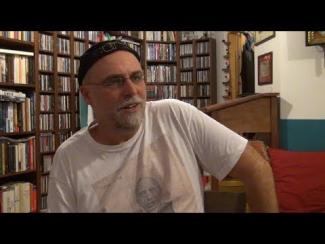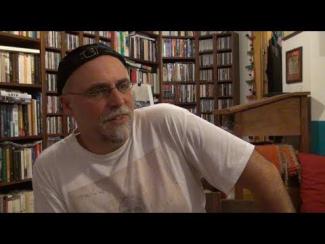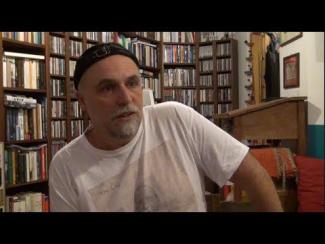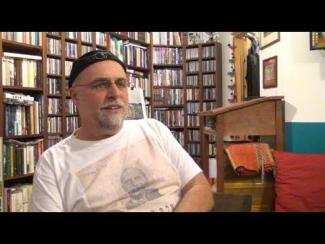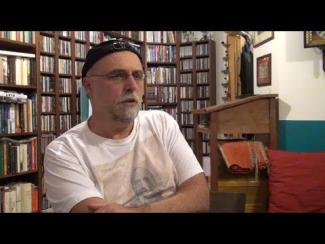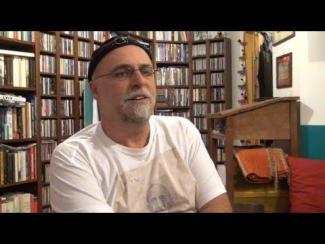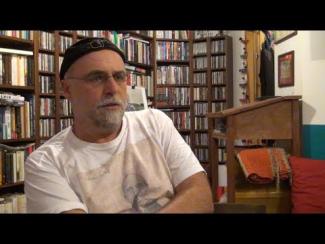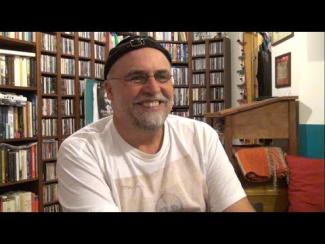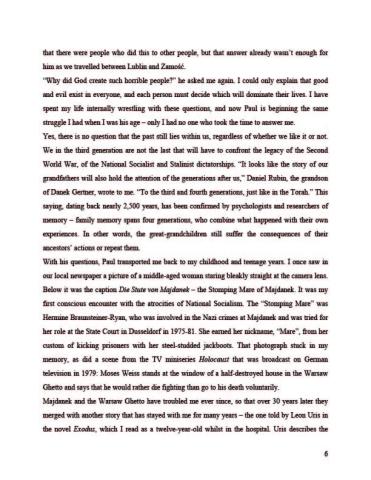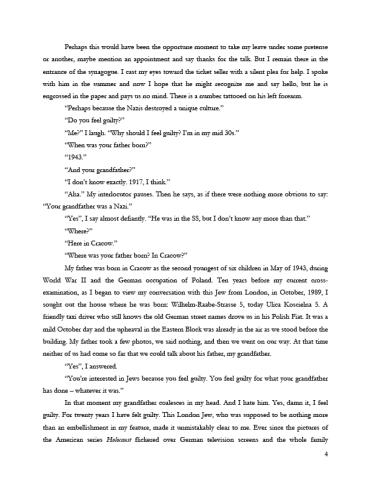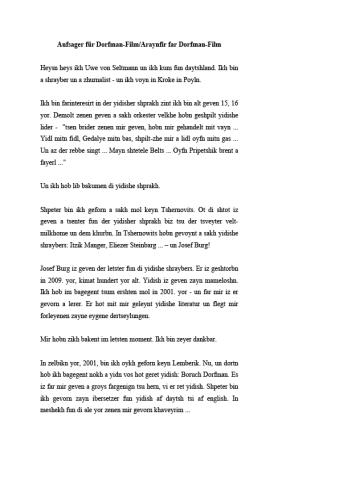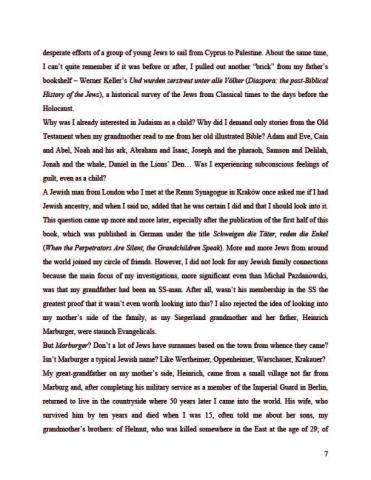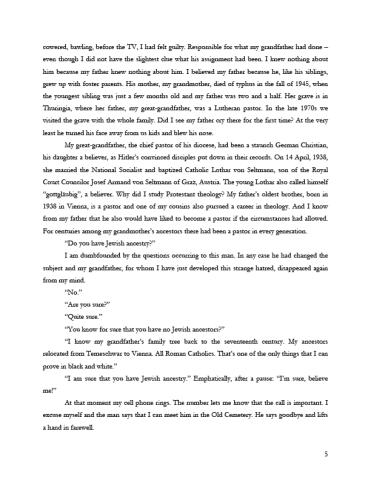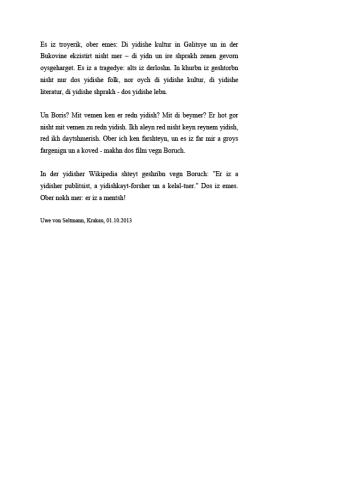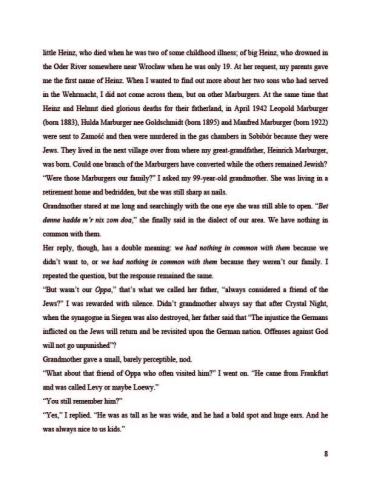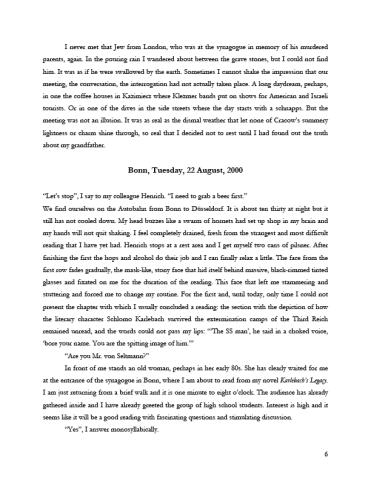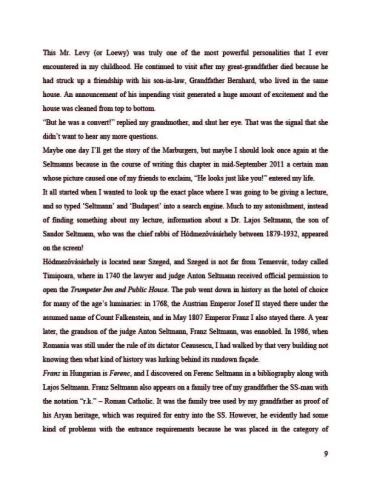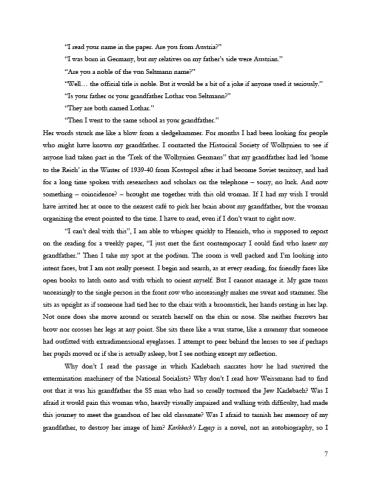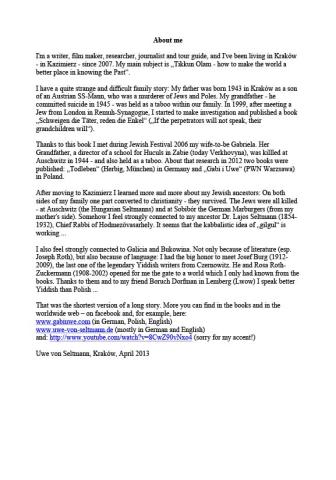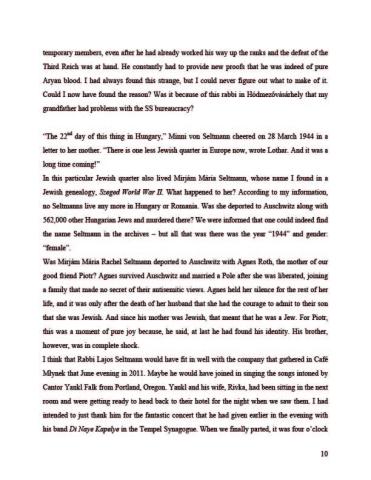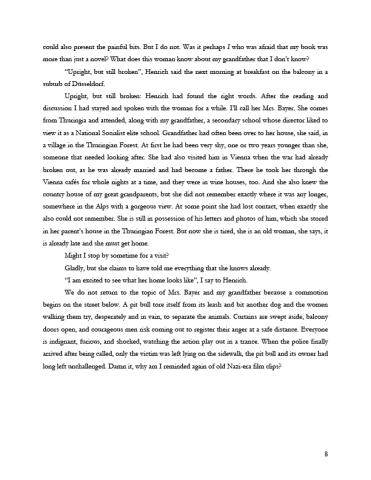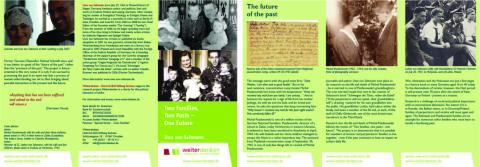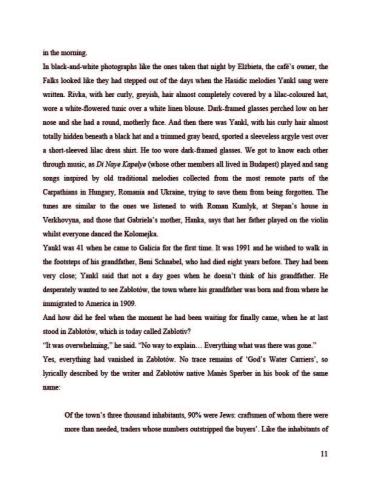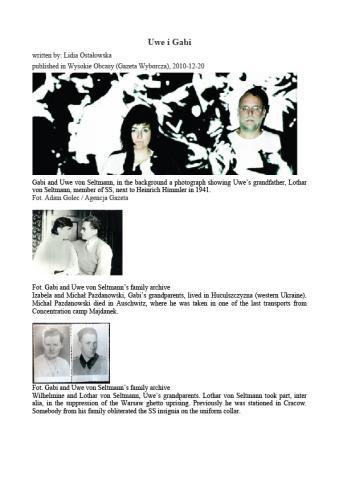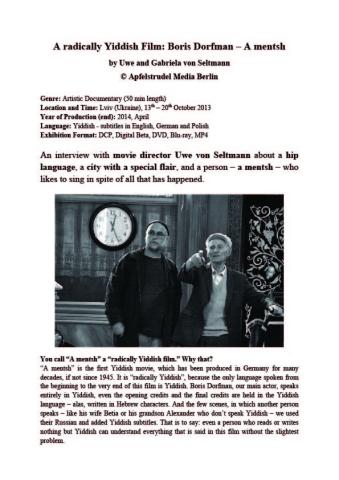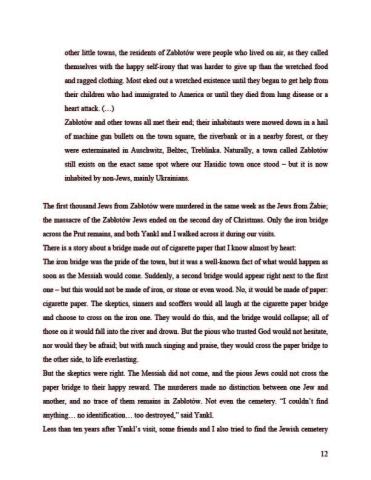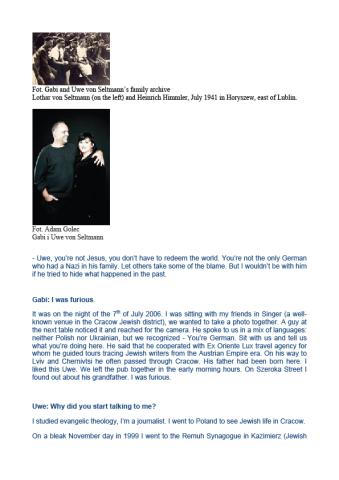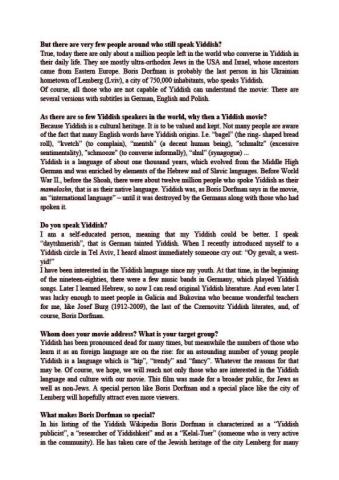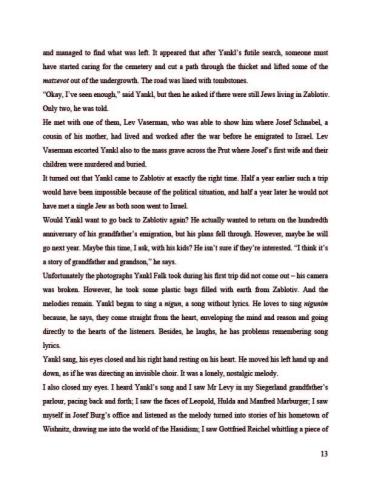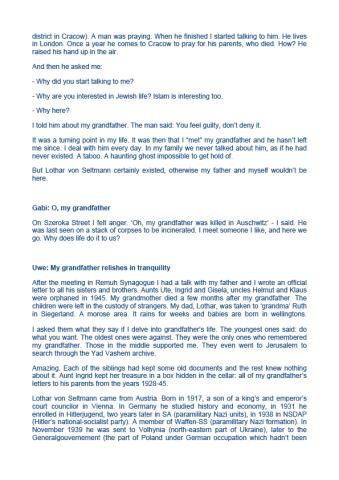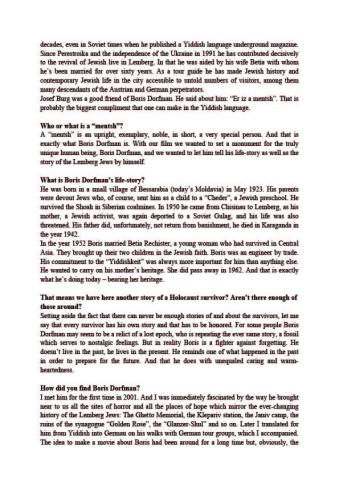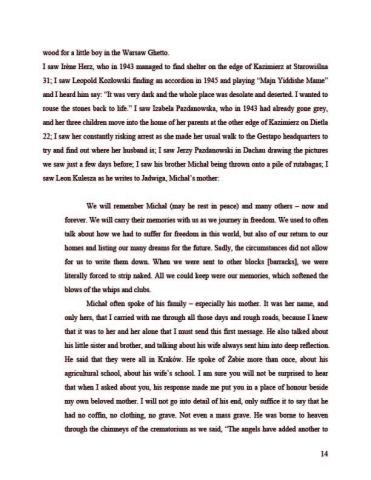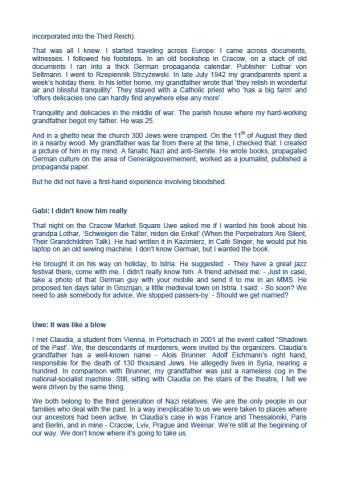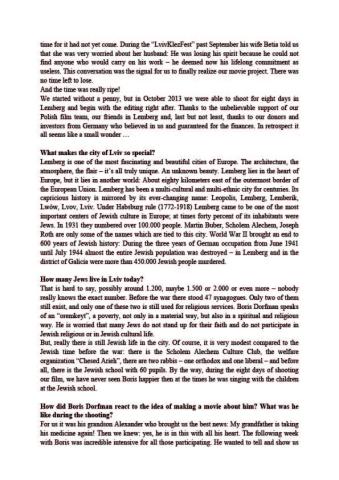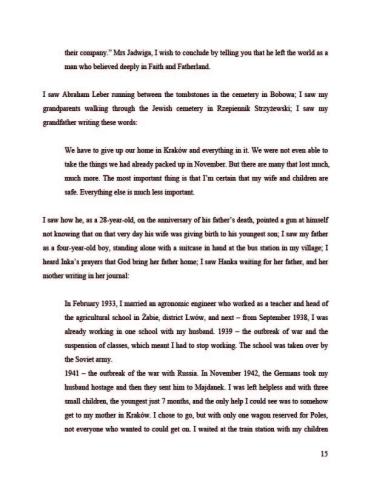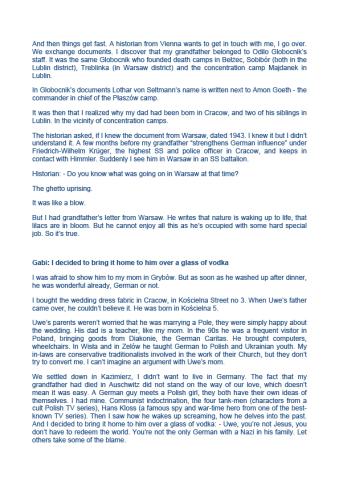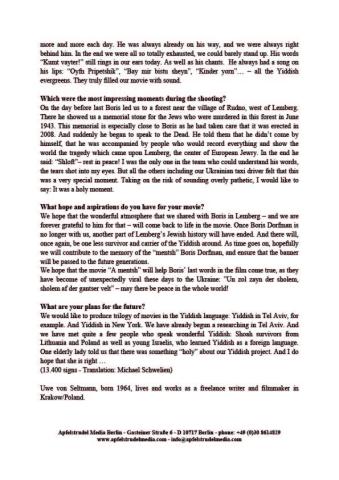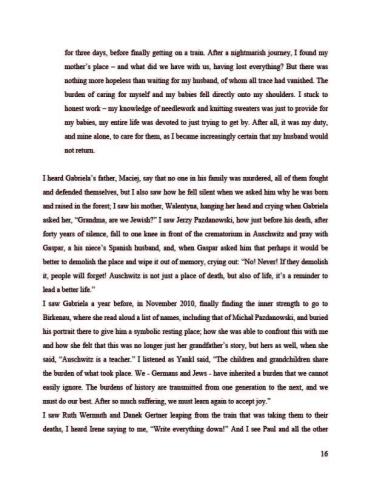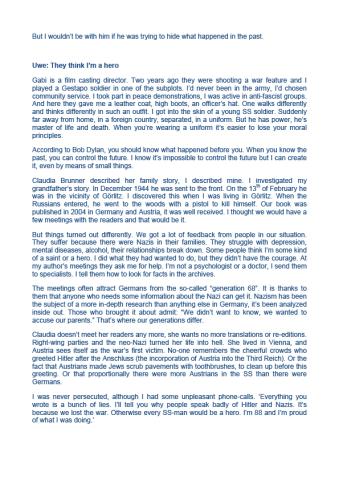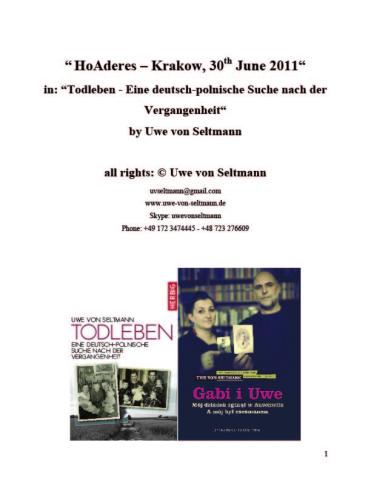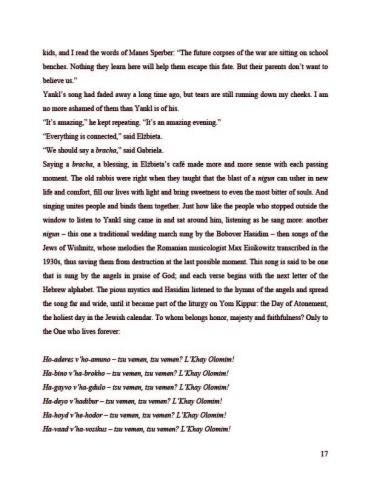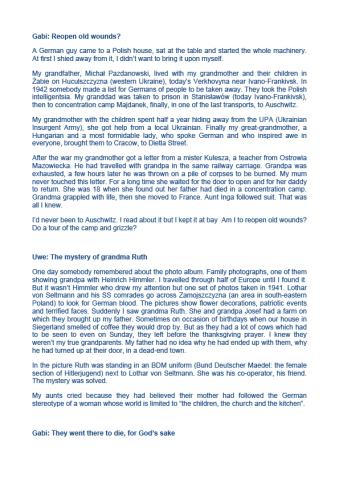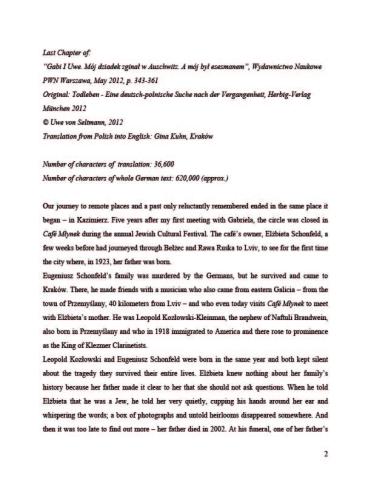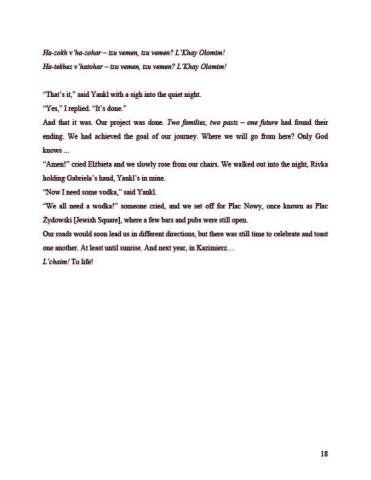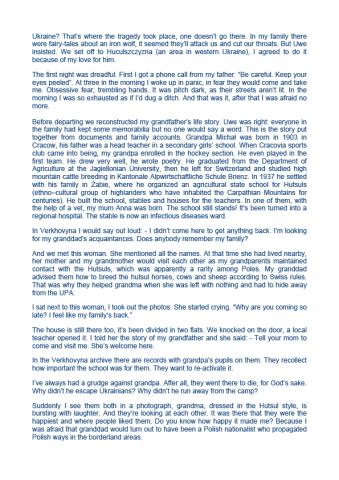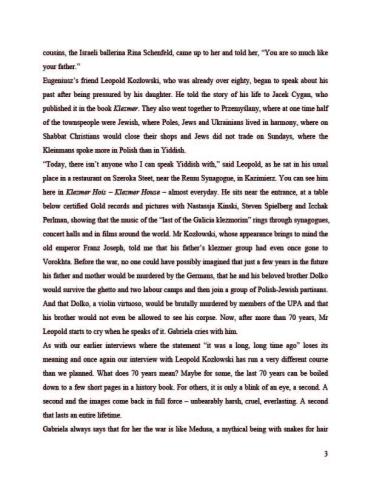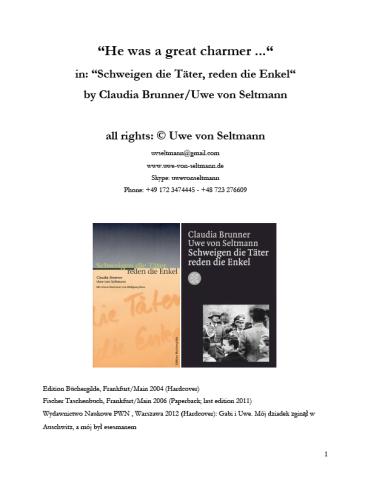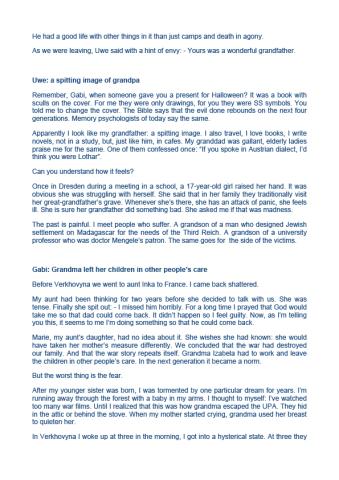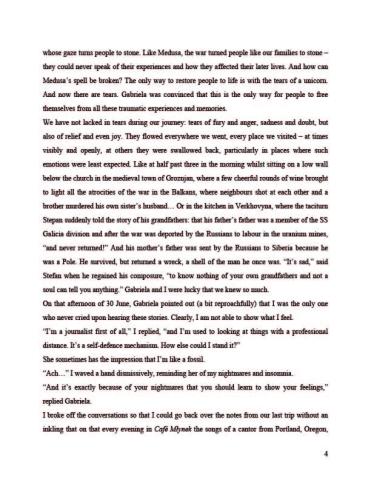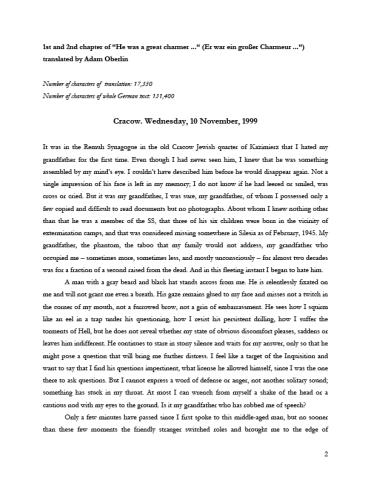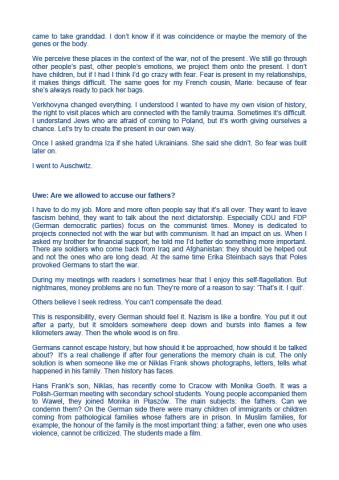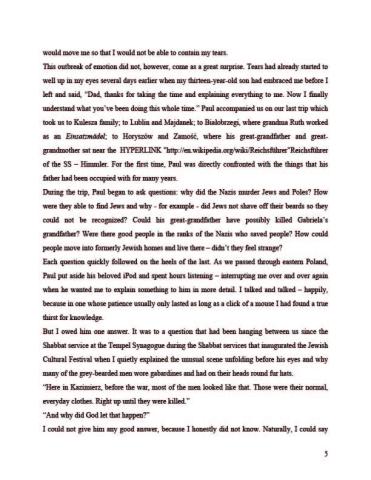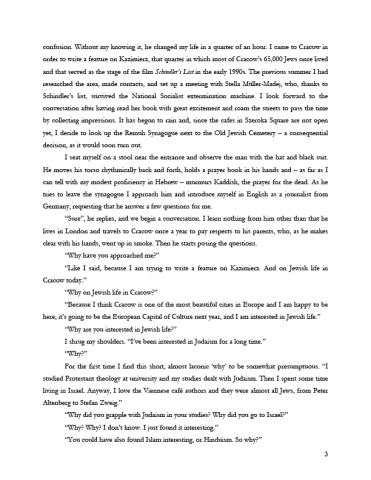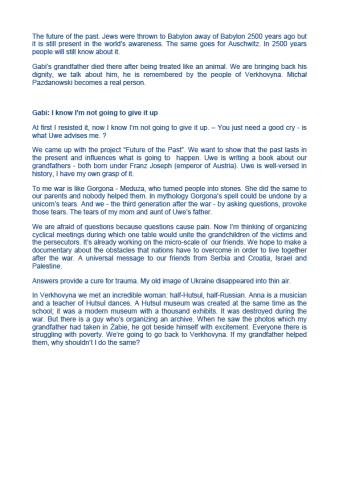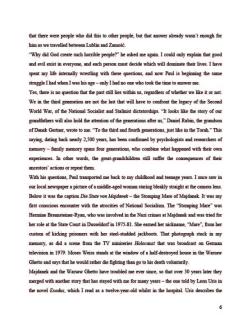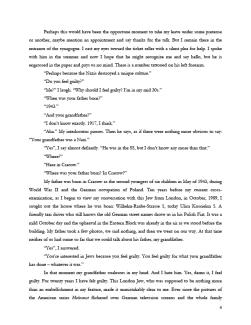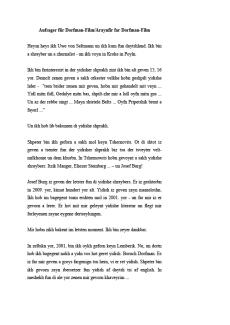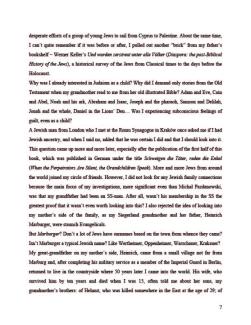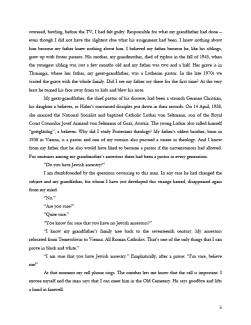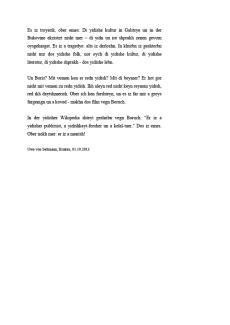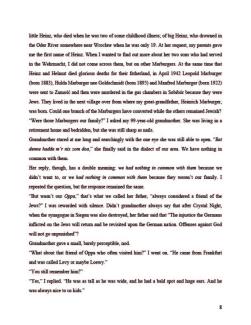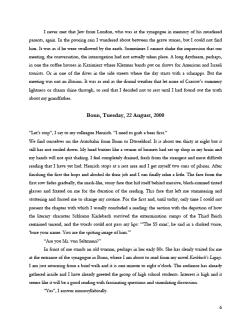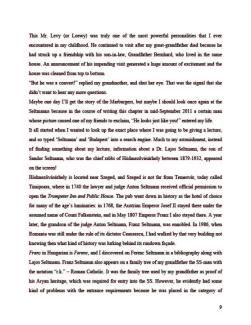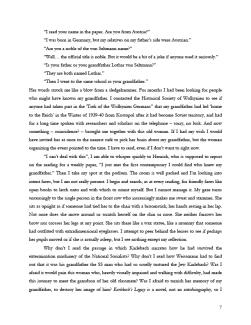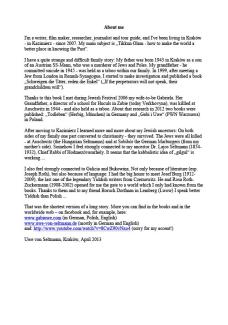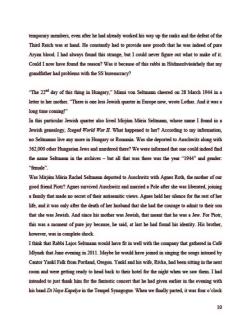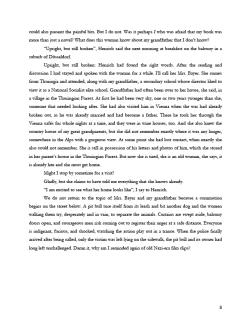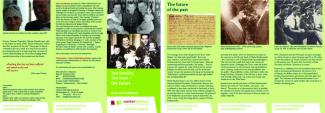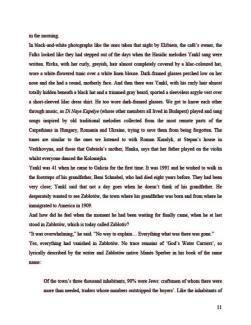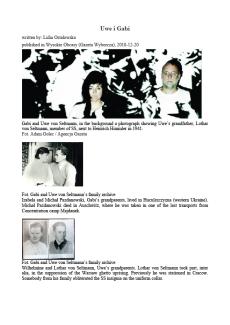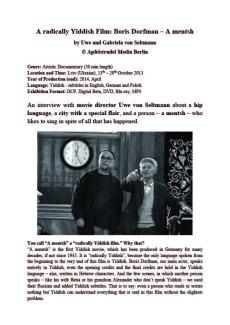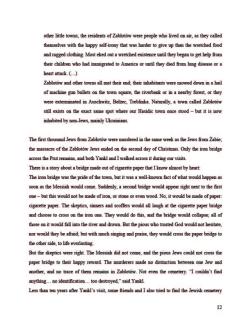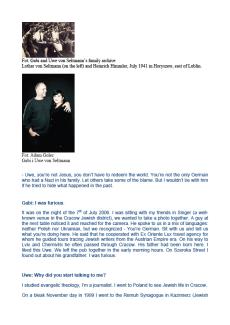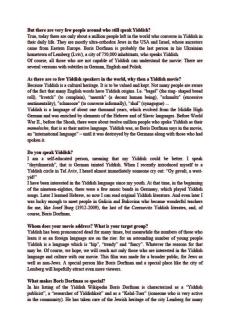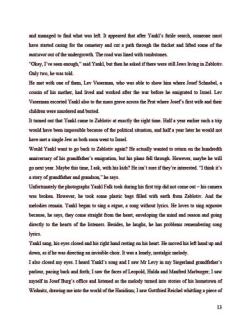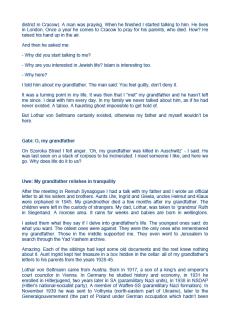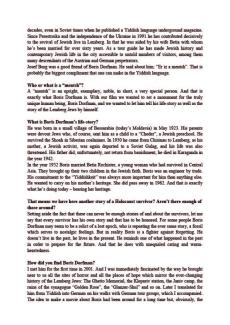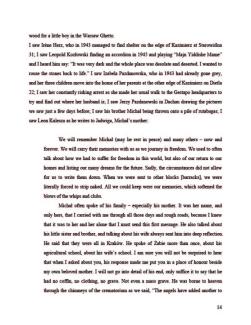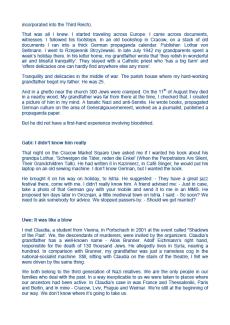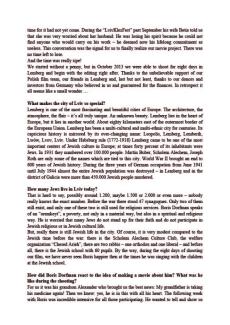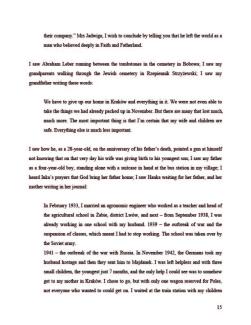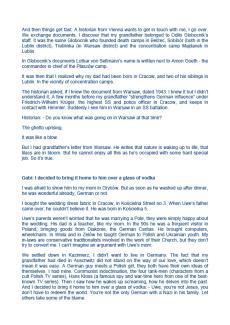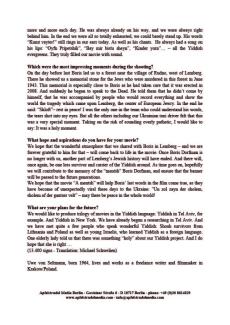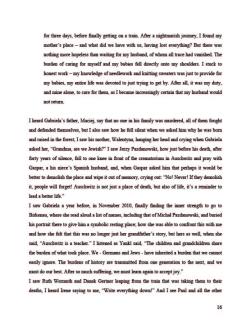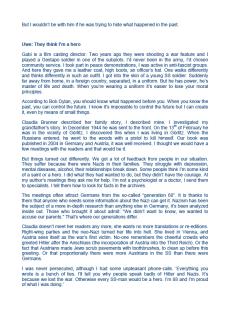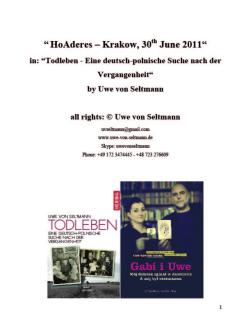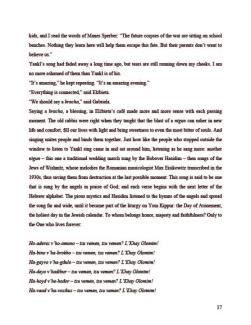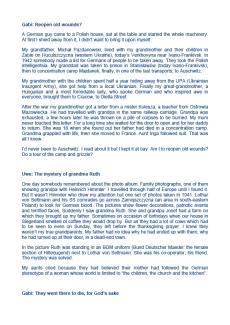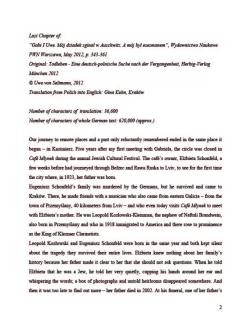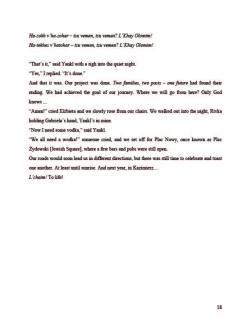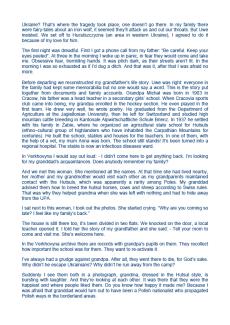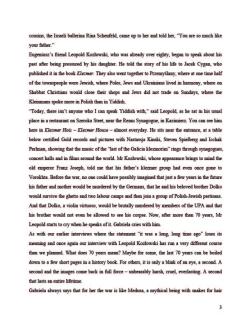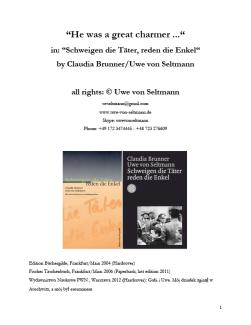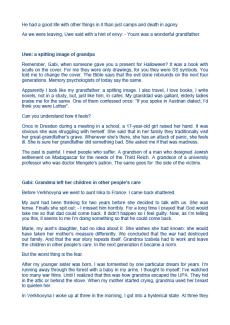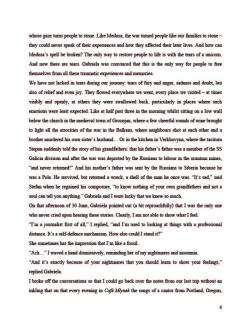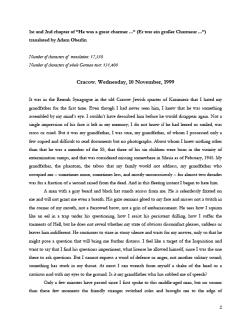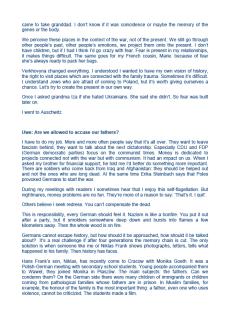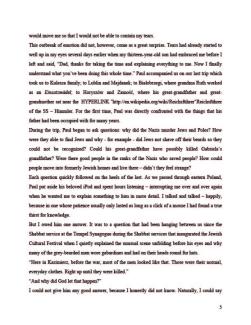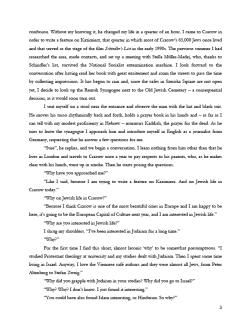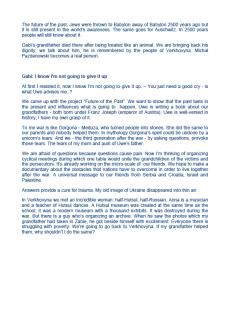The Yiddish Book Center's
Wexler Oral History Project
A growing collection of in-depth interviews with people of all ages and backgrounds, whose stories about the legacy and changing nature of Yiddish language and culture offer a rich and complex chronicle of Jewish identity.
Uwe von Seltmann's Oral History
Uwe von Seltmann, German author and journalist, was interviewed by Agnieszka Ilwicka on January 3, 2016 in Krakow, Poland. As his family was loathe to discuss such things, it took a while for Uwe to figure out that his grandfather served in the SS in Lublin and Krakow. Uwe was always drawn to Jewish subjects. In 1999 in Krakow, he met a man praying in the Remuh synagogue who suggested that Uwe's interest in Jewish subjects might relate to his family's Nazi history. He also wondered whether Uwe might have some Jewish roots. In 2004, Uwe published a book in Germany about his family's Nazi past. He describes the negative reaction of many of his older family members. Besides being editor-in-chief of a weekly magazine, Uwe was working as a tour guide in Eastern Europe. On the way back from a trip, he stopped at a Jewish cultural festival in Krakow and met his wife Gabi, whose grandfather was murdered at Auschwitz. A year later, drawn to each other for complex reasons, they married and wrote a book together about both their grandfathers. Uwe later learned that one branch of his mother's family had converted to Christianity. Several of those who had not were killed in Sobibór. Recently he has discovered that his father also had Jewish relatives; his direct ancestors had converted to Catholicism and were not recognized to be Jews. As a teenager, Uwe got interested in Yiddish and learned a little bit on his own; as an adult he studied with two teachers. He demonstrates his basic facility and has read Itzik Manger and Sholem Aleichem in the original. He once discussed with a rabbi the Jewish concept of the transmigration of souls and wonders whether a Jewish relative whose life was cut short found a place to land in him. Uwe grew up in a very religious Protestant family; like Evangelicals in America, they were very pro-Israel. From 1994 – 1995, he lived in Jerusalem, working in an Austrian hospice. He has been to Israel recently and is very unhappy with the political changes that have occurred since his earlier visit. Uwe's two favorite Yiddish authors are Josef Burg, who was a friend and teacher, and Itzik Manger. To him the two best singer-songwriters are Bob Dylan and Leonard Cohen, and his favorite German writer is Josef Roth – he notes that all of them are Jews. Uwe talks about Boris Dorfman, the writer and activist, and the movie he and Gabi made about him. He had met him many years before and translated some of his works from Yiddish to German. They raised money through crowdfunding and the film premiered in 2014 in Lemberg. "Boris Dorfman: A Mentsh" is the first Polish-German production filmed almost entirely in Yiddish. Uwe and Gabi are working now on a project about Mordkhe Gebirtig, Yiddish writer from Krakow. Almost no one in the previously Jewish section of Krakow is familiar with this wonderful writer, murdered by German soldiers in 1942. Many musicians will perform in the film, and it will contrast the old Jewish life here with the young fun-seekers who now sit in the pubs and coffee houses. Some Jewish spirit has returned after Steven Spielberg filmed "Schindler's List" here and the Jewish Cultural Festival was established. Uwe thinks that Yiddish will live on in one way or another, as "Yiddishland" now exists in New York and Eastern Europe, but also in a "virtual room." He feels that his reason for being is to do good in the world, to be open and connected to people, and to "make love, not war", in part in response to the evils of the past.
This interview was conducted in English and Yiddish.
Uwe von Seltmann was born in Musen, Germany in 1964.

